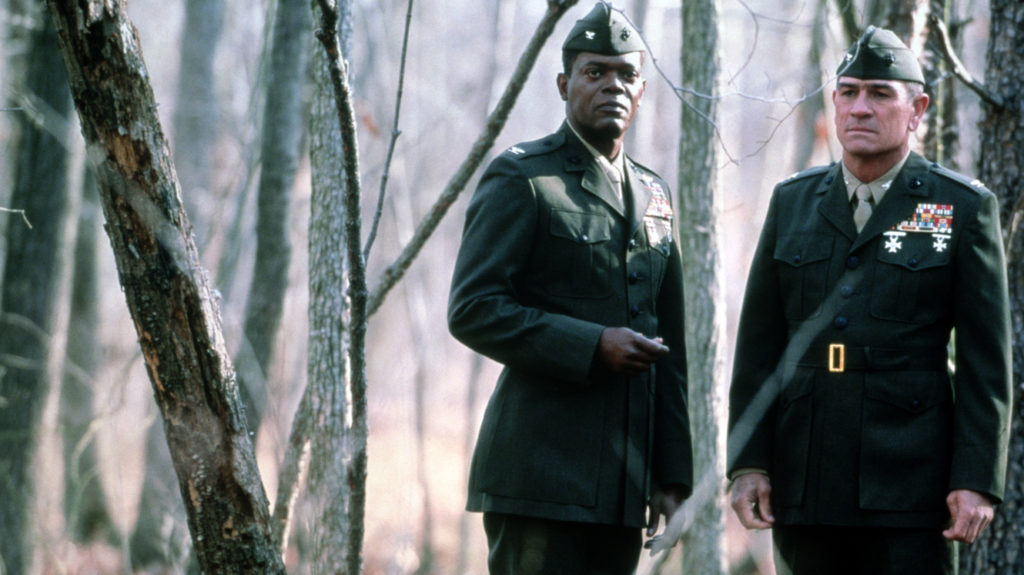
U.S. Marine Col. Terry Childers, a much-decorated combat veteran, is sent with a team of Marines to assist the U.S. Embassy in San’a, Yemen, which is being besieged by Islamic fundamentalist protesters. As their helicopters come into view, snipers on a rooftop open fire on the choppers and the embassy. Childers’ team lands, evacuates the ambassador and his family, and then are pinned down on the embassy rooftop by heavy weapons fire that seems to be coming from all directions. As more and more Marines are hit, Childers finally gives the order for his Marines to return fire. The result is more than 70 dead, apparently unarmed civilians in the town square. The public relations fiasco puts the United States in a bad position, and Childers is charged with murder. For his defense, Childers turns to his old friend, Col. Hodges, a Marine lawyer whose life he saved in Vietnam.
Positive Elements: A strong element of faithfulness to duty, courage, and the pursuit truth and justice runs through the entire film. Many scenes of Marines risking their lives to help fellow Marines.
Spiritual Content: Not much. An Islamic cleric urges followers into jihad against the United States.
Sexual Content: None.
Violent Content: Extreme during combat scenes. Blood sprays across a tree trunk, a man’s head explodes, blood gushes from the mouth. Photos of dead and mutilated bodies are shown frequently during courtroom scenes. Combat scenes are harrowing.
Crude or Profane Language: The f-word, and its many variants, gets a workout. The Lord’s name is also taken in vain many times. Other crudities and obscenities throughout.
Drug and Alcohol Content: Marines drink beer during an officer’s retirement party. Col. Childers gets drunk in his quarters. He’s shown with an empty bottle of whiskey by his side.
Other Negative Elements: During a flashback scene to Vietnam, Childers threatens to execute an unarmed Vietnamese prisoner if his commander does not call off an attack. He carries out the threat in a graphic scene reminiscent of the classic Vietnam War photo of a prisoner being shot in the head point-blank. The film is ambivalent about this: it’s clearly treated as the atrocity it is, yet it also tries to show that it was an exigency of war, one necessary to save the lives of his comrades—and to maintain Childers’ status as the film’s protagonist.
Summary: Rules of Engagement is a classic good vs. evil movie. But it doesn’t resort to caricatures. Even the Marine prosecutor, Maj. Biggs, is shown to be driven by duty, and he warns his civilian bosses that he is not their hatchet man; his concern is with truth and justice. I was pleased with the truthful portrayal of all the Marines, warts and all. The free flow of obscenities is troublesome, but I can vouch by personal experience that it is in line with what you would hear on a Marine base any day of the week. (Of course, that reality doesn’t make it appropriate family entertainment.) In the end, Engagement’s positive moral lessons vie with significant amounts of crude language and graphic violence.
